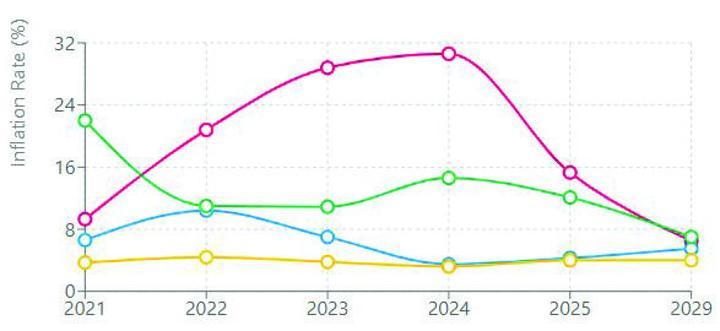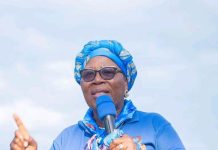Africa-Press – Malawi. The International Monetary Fund (IMF) has estimated Malawi’s headline inflation—the rate at which commodity prices change at a given period in an economy—to average 30.6 percent in 2024, the highest in recent past.
Already, in the first nine months of the year, inflation averaged 33.38 percent.
In its latest World Economic Outlook, the Bretton Woods’ institution, however, points to a possible ease in inflationary pressure in the short to medium terms, projecting the headline inflation to go down to 15.3 percent by 2025.
The long-term outlook suggests a convergence with regional norms, as neighbouring countries are projected to maintain single-digit inflation rates through 2029.
In an interview, Economist Marvin Banda said elevated food prices would, however, continue to exert pressure.
“The government expenditure to avert food insecurity will continue to contribute counterintuitively towards inflationary pressures,” Banda said.
The Reserve Bank of Malawi (RBM) set a five percent medium-term inflation target.
Mark LunguIn a recent interview, RBM spokesperson Mark Lungu acknowledged that recent projections, influenced by factors such as food supply shortages and climate-related issues, have pushed inflation estimates higher.
Malawi’s headline inflation went up in September to 34.3 percent from 33.9 percent in August.
The September increase is attributed to a rise in food inflation, which rose to 43.5 percent in September from 42 percent in August, while non-food inflation saw a slight decrease from 22.7 percent to 21.8 percent.
In urban areas, the overall month-to-month inflation rate was at 1.4 percent, with food and non-food inflation rates at 1.7 percent and 1.1 percent, respectively.
Rural areas experienced a 2.1 percent month-to-month inflation rate in the month under review, with food inflation at 2.9 percent and non-food inflation at 0.7 percent.
Economic Association of Malawi President Bertha Chikadza recently said the rise in inflation reflected ongoing pressures within the economy.
For More News And Analysis About Malawi Follow Africa-Press






